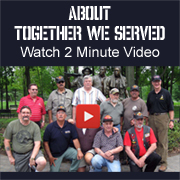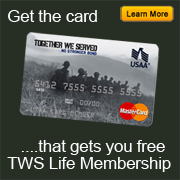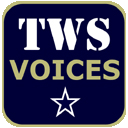 |  |  | |
An up close and personal interview with U.S. Army Veteran and Togetherweserved.com Member:
SP 5 Robert W Hermann U.S. Army (1968-1969)
PLEASE DESCRIBE WHO OR WHAT INFLUENCED YOUR DECISION TO JOIN THE ARMY?
 I went to college majoring in Engineering right out of high school. My class load was tremendous, but I thought I could skate through like I did in HS. I was wrong: I did not make the grade and was kicked out in January 1967 and lost my 2S deferment. I went to college majoring in Engineering right out of high school. My class load was tremendous, but I thought I could skate through like I did in HS. I was wrong: I did not make the grade and was kicked out in January 1967 and lost my 2S deferment.
I worked at a couple of jobs and goofed off aimlessly until I got a letter from POTUS in September 67 inviting me to participate in an examination in downtown LA. In late November, I was later informed that I passed that test with flying colors and was asked to report for induction into the Armed Forces in January 1968. Finally, my life had some direction.
WHETHER YOU WERE IN THE SERVICE FOR SEVERAL YEARS OR AS A CAREER, PLEASE DESCRIBE THE DIRECTION OR PATH YOU TOOK.
I was drafted in January 1968 in Los Angeles where we went through a battery of tests and interviews. I turned down OCS, helicopter flight school, and choice of an MOS - all of which required a 3 year commitment. I just wanted to serve my 2 years and be done with it.
We took our oath and were sent to Fort Bliss, Texas for Basic Combat Training. Basic was hard, but I resigned myself to make the best of it. We got the usual harassment from the drill sergeants as they tried to show us the ropes.
After basic I went to Fort Polk, Louisiana, for Infantry AIT at Tiger Land (AKA the 'Birthplace of Combat Infantrymen for Vietnam') as a mortar-man (11C10). Photo is of me during a field maneuver at Ft. Polk. We graduated from Polk in late May where we received our blue Infantry Shoulder Cords and given orders to report to Oakland, CA after a one month leave.
After a few days at Oakland, they bused us to Travis AFB where we boarded a Flying Tiger 707 (Mission F-239) bound for Bien Hoa, Vietnam at 7:30 pm on June 23, 1968.  We landed in the middle of the night and were bussed to the Long Binh Replacement center. A day or two later I was assigned to the 101st Airborne Division. I protested because I was not parachute qualified, but they were taking anyone - even 'legs' in those days. We landed in the middle of the night and were bussed to the Long Binh Replacement center. A day or two later I was assigned to the 101st Airborne Division. I protested because I was not parachute qualified, but they were taking anyone - even 'legs' in those days.
A group of us were trucked to the 101st Replacement Company at Bien Hoa for a week of in-country training. While going through final processing it was noted that my one year in college and ability to type (a skill I learned in HS) would be needed in the Administration Company.
I spent the majority of my time in Vietnam at the Bien Hoa Army Base. I was assigned to Publications where I was responsible to order, maintain, and provide forms, AR's, etc., for the various departments of the division. I was put in charge of this group in October 1968, when the NCO in charge DEROSED out. One of the other required duties was to perform guard duty on the base perimeter every 4 days or so.
My 11C10 MOS was withdrawn and replaced with 71B20 effective December 7, 1968. I was promoted to Spec 4 on the same day. Up to that point I was on pins and needles that one little screw up and I would be sent to a line unit.
I received orders to report to Fort Benning, Georgia, following my 12 month tour in Vietnam and one month of leave (August 1, 1969). I volunteered to extend my tour in Vietnam for two months to take advantage of the five month early out and my request was approved by the Commanding General on May 25, 1969. This changed my DEROS from June 26 to August 19.
I volunteered to be a courier and made several trips to Phu Bai and Camp Eagle in I Corps during the month of July 1969.
I went through the interview process and was promoted to Spec 5 on July 9, 1969. I received my Honorable Discharge on August 20, 1969, from Oakland, California.
DID YOU PARTICIPATE IN COMBAT OPERATIONS? IF SO, COULD YOU DESCRIBE THOSE WHICH WERE SIGNIFICANT TO YOU?
 The base periodically received in-coming fire in the form of rockets, mortars, and small arms fire. The target was usually the Bien Hoa Air Base which was to our southwest. The enemy was usually sending rockets and mortars from the north or east, so we got a few short rounds. The base periodically received in-coming fire in the form of rockets, mortars, and small arms fire. The target was usually the Bien Hoa Air Base which was to our southwest. The enemy was usually sending rockets and mortars from the north or east, so we got a few short rounds.
Things warmed up a bit during the Post Tet Offensive of February 1969. On the morning of February 26, 1969, while our company was on the perimeter we detected enemy elements as they were massing for a ground attack on the Bien Hoa Air Base. The enemy was routed and a body count of 62 was directly attributed to the actions of our company.
OF ALL YOUR DUTY STATIONS OR ASSIGNMENTS, WHICH ONE DO YOU HAVE FONDEST MEMORIES OF AND WHY? WHICH ONE WAS YOUR LEAST FAVORITE?
I do have some fond memories of all of them, but the fondest are of my time in Vietnam. The camaraderie, the fine men (peers, NCO's, officers) I worked with.
For the most part everyone did their best to succeed in their mission. We worked hard and we played hard. Yes, there were some bad times, but overall it was a good experience for me. I learned a lot of things that would be useful later in my life.
FROM YOUR ENTIRE SERVICE CAREER WHAT PARTICULAR MEMORY STANDS OUT?
My brother Phil enlisted in the Army before I was drafted and became an instructor on radar systems at Fort Monmouth, New Jersey, around the same time I was sent to Vietnam. With me in 'Nam  he could not be involuntarily sent to Vietnam and his CO told him he was going to Nam after I returned. Phil decided he wanted to get an early out also, so he volunteered to be sent to Vietnam in May 1969. I got a call from him when he arrived in Long Binh and I made arrangements with my CO to visit him the next day since it was only a half hour drive over from Bien Hoa. he could not be involuntarily sent to Vietnam and his CO told him he was going to Nam after I returned. Phil decided he wanted to get an early out also, so he volunteered to be sent to Vietnam in May 1969. I got a call from him when he arrived in Long Binh and I made arrangements with my CO to visit him the next day since it was only a half hour drive over from Bien Hoa.
That night we were hit with rockets and one of them hit the ammo dump which burned all night. I drove over to Long Binh in the morning and we had a reunion. He asked where Bien Hoa was and I pointed over to the large column of smoke off in the distance and said, "About a half mile south of it." Nearly every time we get together he recalls that story about our reunion in the Nam.
During my visit I went with his group for weapons orientation training at a range at Long Binh. Here is a photo I took of my brother firing an M-60 on that day.
OF ALL THE MEDALS, AWARDS, QUALIFICATION BADGES OR DEVICE YOU RECEIVED, PLEASE DESCRIBE THE ONE(S) MOST MEANINGFUL TO YOU AND WHY?
The Infantry Shoulder Cord which we earned upon completion of our infantry training at Fort Polk means the most to me. It exemplifies the efforts that I put forth to do the best I could during training in the Army. I did much better than I thought I could by eventually qualifying as expert on the M-16 and the 81mm mortar. I was also the fittest that I had ever been before.
It means more to me than the Army Commendation, Good Conduct, or Bronze Stars that I received in my 19 months of active duty.
I am also very proud to have achieved the rank of E-5 within less than 18 months of service. It exemplifies appreciation and recognition by my superiors of the hard work, accomplishments, and sacrifices that I put forth during my tour in Vietnam.
WHICH INDIVIDUAL(S) FROM YOUR TIME IN THE MILITARY STAND OUT AS HAVING THE MOST POSITIVE IMPACT ON YOU AND WHY?
 SSG Ralph Tinsley, my platoon sergeant in Basic. He showed us the ropes and forged us into a well-oiled machine. He was firm but fair. I deserved every push up he made me do. SSG Ralph Tinsley, my platoon sergeant in Basic. He showed us the ropes and forged us into a well-oiled machine. He was firm but fair. I deserved every push up he made me do.
1LT Witko was our first direct supervisor in 'Nam. He was no nonsense and instilled in us that our job was to make him look good. He did NOT want to have his superiors come down on him because one of us screwed up.
CAN YOU RECOUNT A PARTICULAR INCIDENT FROM YOUR SERVICE WHICH MAY OR MAY NOT HAVE BEEN FUNNY AT THE TIME, BUT STILL MAKES YOU LAUGH?
When I first got my assignment in Vietnam, the new guys were put on sandbag duty. Our job was to maintain and repair the sandbag walls that were around each building, hooch, etc. On the first day three of us drove a 3/4 ton truck to the dirt area and we spent a couple of hours filling sandbags and then throwing them into the bed of the truck for transport back to our quarters. We got done, jumped in the truck and started off, except the truck wouldn't move. The engine was on and in gear, but it would not move. We got out and looked around, scratching our heads. What was going on? The driver got back in and tried again with the same result. Standing back a bit, I noticed that the rear end was down quite a bit lower than the front. I got up close to the rear wheel and looked up inside the wheel well and noticed that the fender was lying on top of the tire.  The vehicle was way overloaded. We unloaded about half the sandbags until we got about an inch of clearance above the tire and then headed off back to our area. The vehicle was way overloaded. We unloaded about half the sandbags until we got about an inch of clearance above the tire and then headed off back to our area.
On another occasion while on trash duty, we drove a jeep hauling a canvas covered trailer full of trash to the dump which was a pit about 200 feet long, 40 feet wide, and 20 feet deep. Some of the debris at the bottom of the pit was a smoldering fire. I backed the trailer up to the edge of the pit, dropped the tailgate and started tossing out the stuff. To get the debris out faster, I climbed inside the trailer and started pushed things out with my feet. Some of the debris we had was long, perforated continuous computer paper which was multiple-sheet with carbon paper between the sheets. Apparently, a box of this stuff went down into the pit but a good portion of the paper was still in the trailer with a stream connecting the two. Soon, I saw flames at the back of the trailer as the fire in the pit had traveled up the paper trail and was on its way to the trailer that I was inside. I quickly jumped out at the jeep end. We then pondered the situation as the back end of the trailer started to burn. We quickly unhitched the trailer from the jeep and pushed the trailer into the pit. We brought the jeep back, parked it and walked away. I do not recall anyone asking about the missing trailer.
WHAT PROFESSION DID YOU FOLLOW AFTER YOUR MILITARY SERVICE AND WHAT ARE YOU DOING NOW? IF YOU ARE CURRENTLY SERVING, WHAT IS YOUR PRESENT OCCUPATIONAL SPECIALTY?
My military experience provided the motivation I needed to go back to college and really apply myself. I received my BS in Engineering from California State University, Northridge, with honors in 1974. I worked for Bechtel Corporation on design, construction, and start-up of nuclear power plants for the first 10 years. I became a Registered Professional Engineer in 1977. I worked for Bechtel Corporation on design, construction, and start-up of nuclear power plants for the first 10 years. I became a Registered Professional Engineer in 1977.
I then moved on to design of refineries as well as spending one year on loan to Imagineering for the design of a Disney Theme Park in Paris. I left Bechtel in 1995 when I took a position in the Engineering department of a local gas utility that supports natural gas transmission and storage operations. I retired from work in March, 2012, and now enjoy the life of leisure.
IN WHAT WAYS HAS SERVING IN THE MILITARY INFLUENCED THE WAY YOU HAVE APPROACHED YOUR LIFE AND YOUR CAREER?
My military experience provided the motivation I needed to go back to college and really apply myself.
I also learned a lot from the school of Hard Kocks and how to deal with people in various situations.
BASED ON YOUR OWN EXPERIENCES, WHAT ADVICE WOULD YOU GIVE TO THOSE WHO HAVE RECENTLY JOINED THE ARMY?
Continue to do your best at every challenge that is thrown your way. Your efforts are greatly appreciated by your countrymen and we all think of you often.
IN WHAT WAYS HAS TOGETHERWESERVED.COM HELPED YOU REMEMBER YOUR MILITARY SERVICE AND THE FRIENDS YOU SERVED WITH.
 When I got back home in 1969, I took off my uniform and rarely discussed my military service. Upon the tragedy of 9-11, I took on a greater sense of pride in my Country and service. I was invited to join the TWS website and that furthered a reawakening to dig out the mementos, photos, etc. that I had boxed up so many years ago. The loss of my father in 2012 also set a fire in me to try to find out more of his service in WWII and I created a TWS page for him. When I got back home in 1969, I took off my uniform and rarely discussed my military service. Upon the tragedy of 9-11, I took on a greater sense of pride in my Country and service. I was invited to join the TWS website and that furthered a reawakening to dig out the mementos, photos, etc. that I had boxed up so many years ago. The loss of my father in 2012 also set a fire in me to try to find out more of his service in WWII and I created a TWS page for him.
I also created remembrance pages for a couple of buddies that were KIA and have taken on the administration of over 2300 remembrance profiles of those Fallen during the Vietnam War.
|




Read Other Interviews in the TWS Voices Archive | Share this Voices Edition on:


  |
|
TWS VOICES
TWS Voices are the personal stories of men and women who served in the US Military and convey how serving their Country has made a positive impact on their lives. If you would like to participate in a future edition of Voices, or know someone who might be interested, please contact TWS Voices HERE.
This edition of Army Voices was supported by:
Army.Togetherweserved.com
For current and former serving Members of the US Army, US Army Reserve and US Army National Guard, TogetherWeServed.com is a unique, feature rich resource helping Soldiers re-connect with lost Brothers, share memories and tell their Army story.
To join Army.Togetherweserved.com, please click HERE.
| |